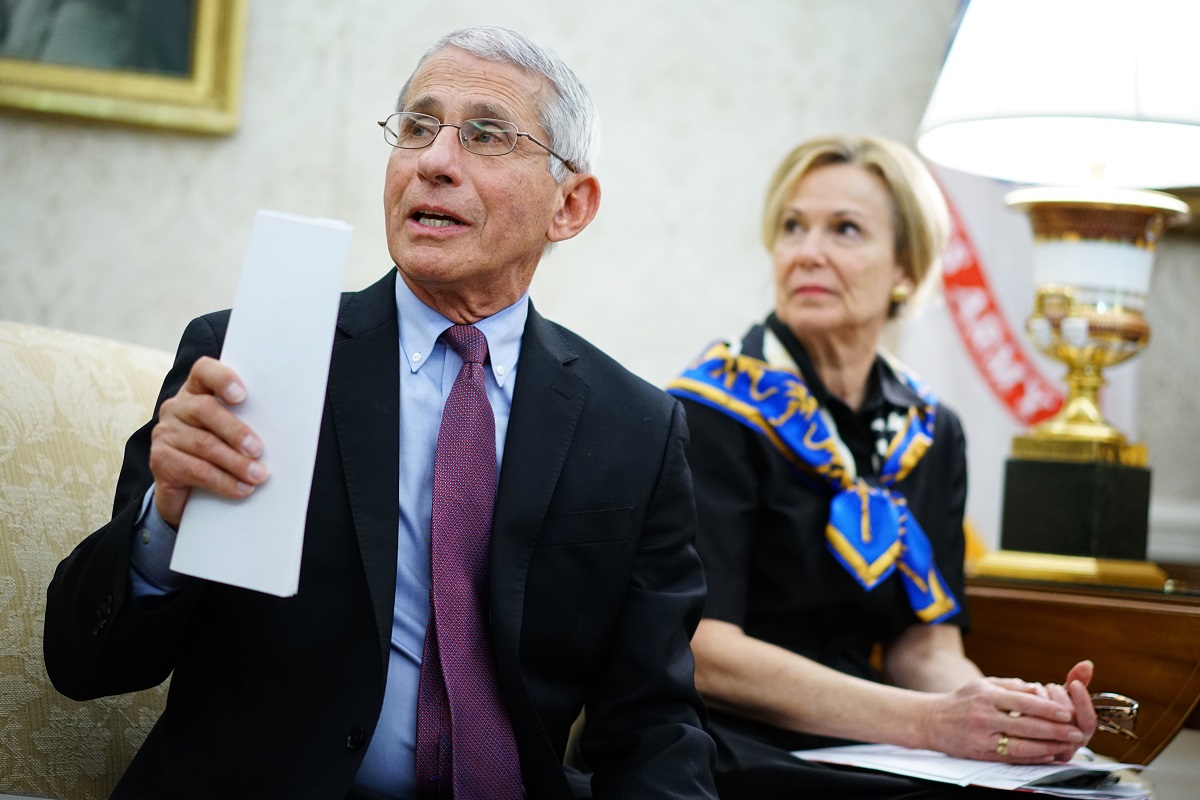The World Health Organization (WHO) said on Monday that the United States had provided no evidence to support “speculative” claims by the American President Donald Trump that the novel Coronavirus originated in a Chinese lab.
“We have not received any data or specific evidence from the United States government relating to the purported origin of the virus – so from our perspective, this remains speculative,” said WHO emergencies Director Michael Ryan during a virtual media briefing.
Advertisement
While the scientists believe and China too has maintained that the deadly virus jumped from animals to humans, emerging in Wuhan, late last year, possibly from on of its wet markets selling meat of exotic animals.
Meanwhile, the top US epidemiologist Anthony Fauci also resonated WHO’s statement in an interview published on Monday by National Geographic.
“If you look at the evolution of the virus in bats and what’s out there now, (the scientific evidence) is very, very strongly leaning toward this could not have been artificially or deliberately manipulated,” said Fauci.
“Everything about the step wise evolution over time strongly indicates that (this virus) evolved in nature and then jumped species,” he said.
US President Donald Trump has been stepping up his attacks on Beijing over the COVID-19 crisis, saying he had seen evidence linking a Wuhan lab to the contagion.
And US Secretary of State Mike Pompeo on Sunday said “enormous evidence” backed up that claim, although the US intelligence community last week said it would continue to study whether the outbreak stemmed from infected animal contact, or a lab accident.
China has vehemently denied suggestions the lab was the source.
“Like any evidence-based organisation, we would be very willing to receive any information that purports to the origin of the virus,” Ryan said, stressing that this was “a very important piece of public health information for future control.
“If that data and evidence is available, then it will be for the United States government to decide whether and when it can be shared, but it is difficult for the WHO to operate in an information vacuum in that regard,” he added.
The United Nations’ agency responsible for international public health has also been under attack by Trump accusing the WHO of initially downplaying the seriousness of the outbreak to shield China. It has repeatedly said that the virus clearly appears to have originated naturally from an animal source.
WHO expert Maria Van Kerkhove stressed during Monday’s briefing that there were some 15,000 full genome sequences of the novel coronavirus available, and “from all of the evidence that we have seen… this virus is of natural origin.”
While the COVID-19 generally originates in bats, both Van Kerkhove and Ryan stressed the importance of discovering how the virus crossed over to humans, and what animal served as an “intermediary host” along the way.
“We need to understand more about that natural origin, and particularly about intermediate hosts,” Ryan said.
It was important to know “so that we can put in place the right public health and animal-human interface policies that will prevent this happening again,” he stressed.
The WHO said last week it wanted to be invited to take part in Chinese investigations into the animal origins of the pandemic, which in a matter of months has killed more than 250,000 people worldwide.
“We have offered, as we do with every case in every country, assistance with carrying out those investigations,” Ryan said Monday.
“We can learn from Chinese scientists,” he said.
But he warned that if questions about the virus’s origin were “projected as aggressive investigation of wrongdoing, than I believe that’s much more difficult to deal with. That is a political issue.
“Science needs to be at the centre,” he said.
“If we have a science-based investigation and a science-based enquiry as to what the origin species and the intermediate species are, then that will benefit everybody on the planet,” said WHO emergencies Director.











